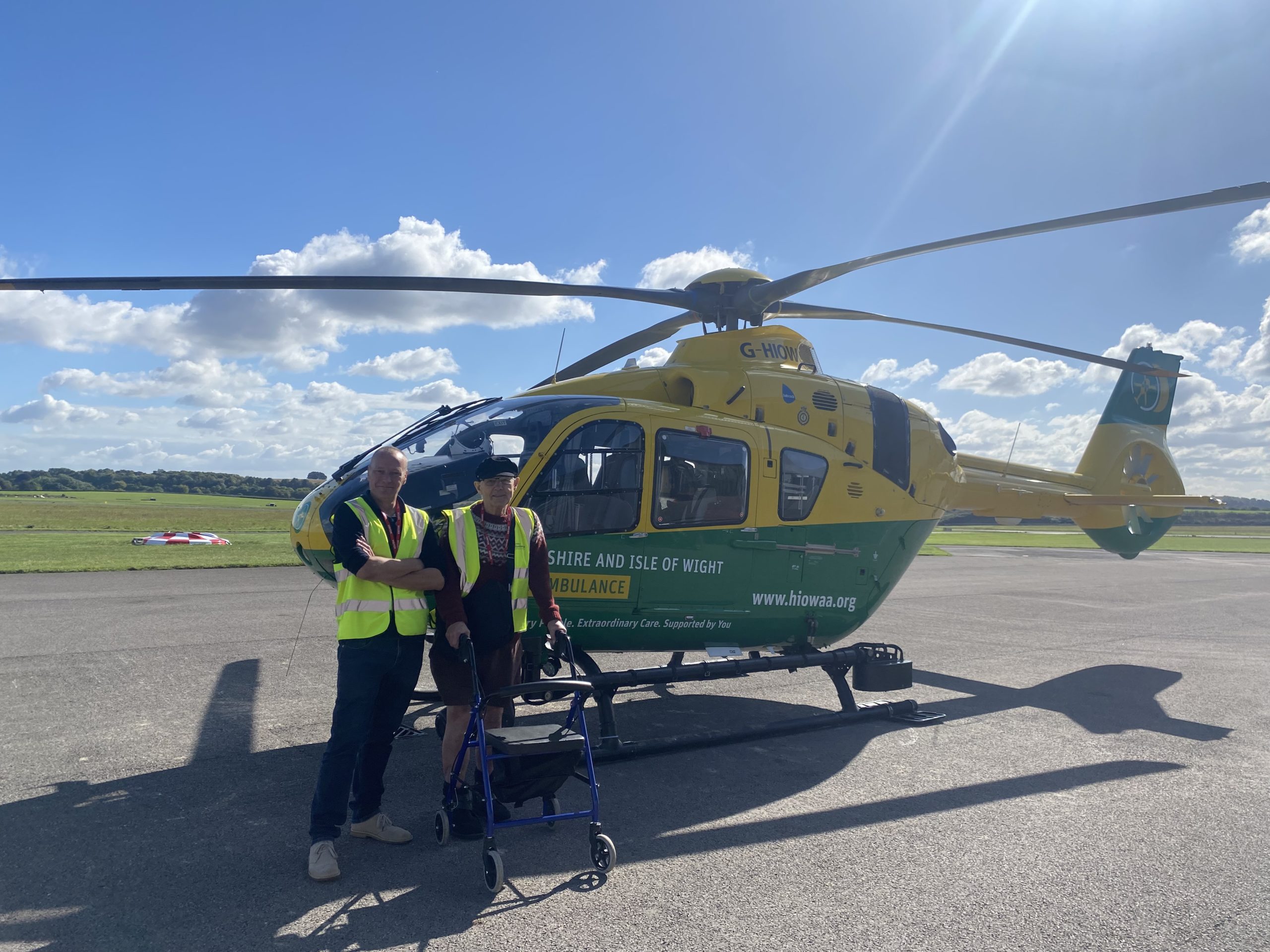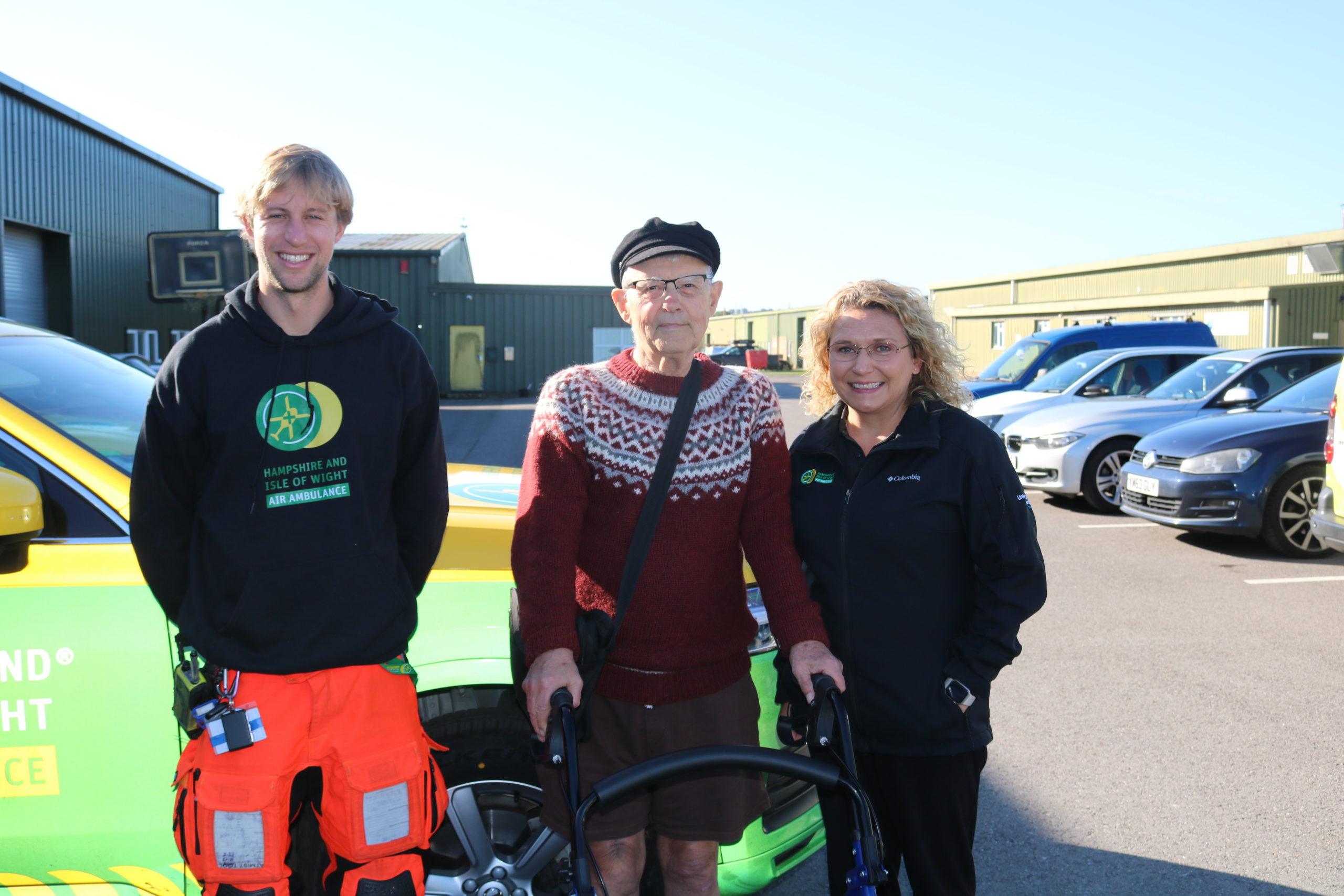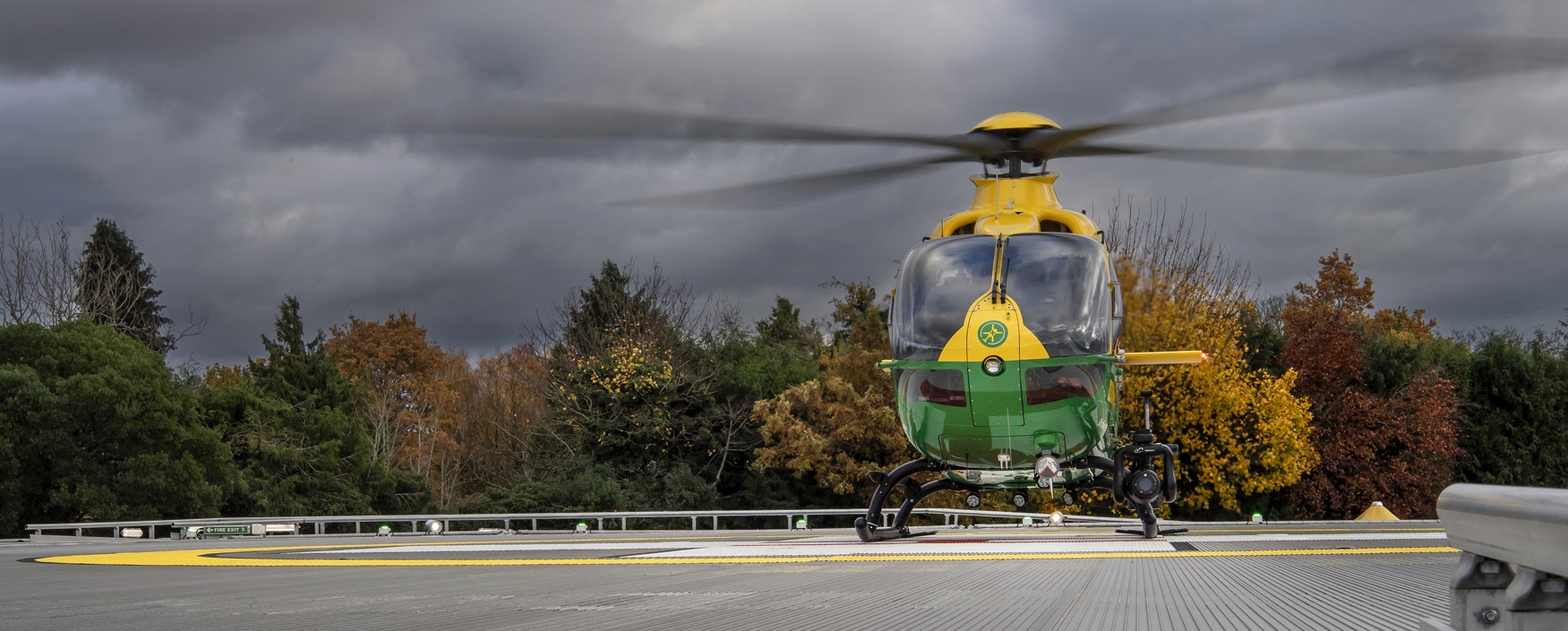“I was left a voicemail from the Emergency Department at 3.20am telling me Dad was there. When I arrived, they told me he was unlikely to make it – and that it was time to say goodbye.”
81-year-old Utrick Casebourne from Winchester is driving home from the MOT garage on a dark and wet October night. The retired university lecturer pulls out from the A272 onto the A31 and collides with another car.
He is conscious but critically ill – bleeding heavily.
It takes the emergency services nearly two hours to free Utrick from the wreckage and get him stable enough to be transported to hospital.
His injuries include an open leg fracture, rib fractures, damage to his hand, and what later turns out to be a herniated and lacerated liver, blood clots on the lungs and kidney damage.
At the scene head blocks and an IV are applied. He is given pain relief and antibiotics, oxygen for his damaged lung and two units of blood – a “Code Red” is declared due to his possible internal injuries.
His daughter, Jo, doesn’t pick up the message from the Emergency Department until 06:30am. She jumps into her car and heads down the motorway to University Hospital Southampton (UHS).
“The intensive care unit (ICU) doctor said get here now or it’ll be too late. It was horrendous,” says Jo. “I was in a bit of a state, but I just had to get there.”

Utrick and his son-in-law visiting our Airbase.
Utrick is placed into an induced coma to protect his vital organs and onto a ventilator for the next two weeks as he undergoes several operations. When he is finally woken up, he stays in ICU until the end of November when he is finally able to move onto a ward.
The next few weeks on the ward don’t go to plan as his lungs are still struggling. After much deliberation, the consultants decide he is fit enough for major surgery.
“They took him down to theatre, but he took a turn for the worse – he now wasn’t well enough to be operated on,” recalls Jo.
“They told us the following day that he was going to die that night. So, we held a vigil for him. The next morning came, and he sat up in bed and asked for physiotherapy and ice cream. He had clearly not got the memo about dying.”
A week later, Utrick undergoes the potentially life-saving surgery. By Christmas Day and his 82nd birthday on Boxing Day, he is back in ICU – making a remarkable recovery.
Getting back on his feet
After three months in UHS and one in a rehabilitation centre in Petersfield, with his family by his side, Utrick is discharged home.
Remarkably, Utrick is back to near-full health. He relies on a walking frame at home and when out and about on the cobbled streets of Winchester.
“I was determined not to die.”
“Most of my family live until they’re 100, so I wasn’t going to go at 81,” says Utrick.
“I’ve got another 20 years left. But I was very lucky to survive. I think I may well have died on the spot. I owe my life to what was done on scene and for the surgery that was done in hospital. They saved my life.”
“It is so surreal that he is so well now,” adds Jo. “I was looking at funeral arrangements, hospices, end of life care. And now, we’re having breakfast together in the Ivy – which was Dad’s main goal when he was in hospital.”
The role of Aftercare

Utrick with one of the paramedics who responded to him, Julian, and Nikki from our Aftercare team.
While Utrick was in a coma, our Aftercare Manager Nikki Harris left a letter for Jo and her sister Imogen on Utrick’s bedside table, offering her support.
Jo remembers: “Nikki was involved from the very get go. She helped us navigate everything that happened, which was obviously very emotionally difficult.
“And when we were struggling to get him discharged, we considered options together on how we could get him out. He was desperate to leave – his mental health was suffering. Nikki was there all throughout that. It made such a difference to us and to Dad. It was just amazing really.
“We are so grateful to Nikki and to the crew for saving his life. To know he was in such good hands is so reassuring.
“Nobody knows when they’re going to need the services of Hampshire and Isle of Wight Air Ambulance. It is an absolute lifeline for the patient and the family – often in extreme circumstances.
“To have them standing by your side and taking you through the highs and lows is invaluable. I just don’t think we could have done it without them.”



 Donate
Donate







